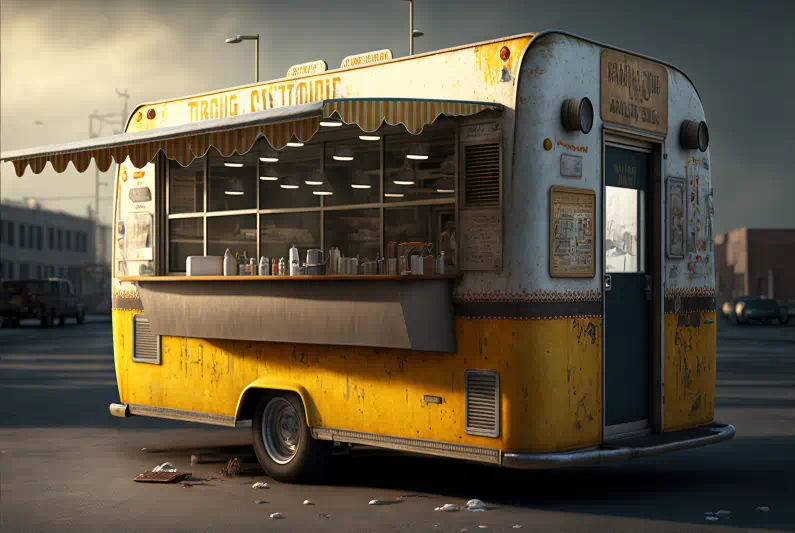The Allure and Pitfalls of Embracing a Franchise Business System
The Pros and Cons of Duplicating a Franchisor's Business System
Introduction
The franchise model has been a popular choice for entrepreneurs looking to start a new business, offering a tried-and-tested blueprint for success. By duplicating a franchisor's business system, franchisees can potentially reduce their risk of failure and benefit from the guidance and support of an established brand. However, like all business models, it comes with its own set of advantages and disadvantages. In this blog post, we will explore the pros and cons of duplicating a franchisor's business system, to help you make an informed decision about whether it's the right fit for you.
Pros of Duplicating a Franchisor's Business System
- Proven Business Model: One of the main advantages of duplicating a franchisor's business system is that you are adopting a proven business model. The franchisor has likely spent years refining their system, making it easier for franchisees to succeed. This can provide a sense of security, knowing that the system has a track record of success.
- Brand Recognition: When you join a franchise, you benefit from the brand recognition that comes with the franchisor's name. This can save you time and effort in building brand awareness and gaining customer trust, which are crucial factors in the success of any business.
- Training and Support: Franchisors often provide extensive training and ongoing support to their franchisees. This can include help with site selection, marketing, operations, and more. This support can be invaluable, particularly for those who are new to business ownership or the specific industry.
- Access to Suppliers and Resources: Franchisees typically have access to the franchisor's established network of suppliers and resources, which can lead to cost savings and better access to high-quality products or services. This can be a major advantage in industries where economies of scale play a significant role.
Cons of Duplicating a Franchisor's Business System
- Limited Creativity and Control: One of the most significant drawbacks of adopting a franchisor's business system is the potential for limited creativity and control. Franchisees are often required to adhere strictly to the franchisor's guidelines, which can stifle innovation and prevent you from making changes that could benefit your specific location or customer base.
- Initial and Ongoing Costs: Franchisees are typically required to pay initial franchise fees, as well as ongoing royalty fees, which can eat into profits. These fees can sometimes be substantial, and it's essential to consider whether the benefits of the franchise system outweigh these costs.
- Possible Franchisor Issues: While many franchisors are supportive and helpful, there can be cases where the franchisor is not as reliable or helpful as expected. This can lead to disputes or a lack of support, making it more challenging to succeed as a franchisee.
- Market Saturation: In some cases, a franchisor may have saturated the market, leading to stiff competition among franchisees. This can make it more difficult to achieve the desired level of success, particularly in areas with numerous competing businesses.
Conclusion
Duplicating a franchisor's business system can offer several advantages, including a proven business model, brand recognition, and access to training and support. However, it's crucial to weigh these benefits against the potential drawbacks, such as limited creativity, ongoing costs, and possible franchisor issues. By carefully considering the pros and cons of this business model, you can make a more informed decision about whether a franchise is the right fit for your entrepreneurial journey.

Make sure you grasp the pros an cons of duplicating a franchisor's business system before signing any agreements
The Idea of becoming you own boss may have corssed you mind many times. If you have always wanted to strike out on your own, there is no better time to do it than when times are good. A good economy gives you a much better chance of succeeding in your venture.
Management guru Peter Drucker once said, “whenever you see a successful business, someone once made a courageous decision”.
Although globalisation has brought along with it layoffs, mergers, acquisitions, restructuring and outsoucing, and created a sense of uncertainty for the future, the percentage of people taking the route to becoming self-employed is still very small, mainly because there is a high sense of insecurity involved in running a business. However, there are risks to face too when you choose to remain an employee.
Besides starting a business from scratch or buying over existing business, there is another alternative to owning a business---through a franchise.
What is a franchise?
A franchise is an agreement which gives a person or group of people(also known as the franchisee) the right to market a product or service using the trademark or trade name of a franchisor, and in some cases, to use the franchisor's business system.
For example, McDonald's does not “franchise” hamburgers. It franchises its business system for selling hamburgers under its trademark. It was once a small start-up selling 15-cent hamburgers before transforming itself into a franchise system that has become a global brand today.
Why take up a franchise?
Your franchisor will assume you know nothing. He will train and assist you in the business and hely you after you have become established.
No one knows for sure if a franchised business is better than a non-franchised business or a company which starts from scratch. But based on anecdotal evidence, it appears that a new franchisee is likely to have far better prospects of success than a new non-franchised start-up.
The United States Department of Commerce has estimated that over 80 per cent of independent small businesses fail in the first five years. On the other hand, the international Franchise Association estimates that during the first five years, only 5 per cent of all franchisees fail.
There are a number of reasons for this:
the franchisor has invested in taking the development risk;
the franchisor has a working and proven model for you to investigate;
the franchisor trains the franchisee and helps him establish his business;
the franchisor provides on-going guidance and assistance including training; and
there are benefits in terms of bulk purchasing and in combining resources for advertising and promotion.
In summary, a franchisee obtains a range of services and benefits, which would not be available to an individual business owner, at a price which makes economic sense.
However, franchising does have its limitations:
initial franchise fee----This is the fee that you pay the franchisor to benefit from the business system he has established.
On-going royalty fees and advertising fee-This is typically a small percentage of your gross revenue payable to the franchisor on a periodic basis.
Conformity to standard operating procedures- You need to follow their system even though you may think that you can do better.
Restricted territory-You are designated a territory to operate your business which may reduce your growth ability.
Duration of relationship-Just like staying in a leasehold apartment, you need to return the right to operate the franchise business after an agreed period, unless you have the option to renew or sign a new franchise agreement.
Dependency on franchisor's success-if the franchisor's business fails, the entire franchise network could be at risk too.
If you are an aspiring franchisee, you must do some homework to educate yourself on how to investigate a franchise business, develop a business plan and negotiate an agreement.
And when your franchise business is thriving, you could always consider diversifying into other non-competing businesses to overcome any limitations in your current franchise agreement.
